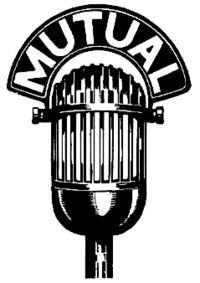Mutual Radio Network
| Type | Cooperative radio network (1934–52); corporate-controlled radio network (1952–99) |
|---|---|
| Country | United States (and Windsor, Ontario, Canada) |
| Founded | September 29, 1934 (organized); October 29, 1934 (incorporated) |
| Dissolved | April 17, 1999 |
| Affiliates | 4 founders (1934); 104 (1938); 384 (1945); 543 (1950); 443 (1960); 950 (1979); 810 (1985) |
The Mutual Broadcasting System (commonly referred to simply as Mutual; sometimes referred to as MBS, Mutual Radio or the Mutual Radio Network; corporate name Mutual Broadcasting System, Inc.) was an American radio network in operation from 1934 to 1999. In the golden age of U.S. radio drama, Mutual was best known as the original network home of The Lone Ranger and The Adventures of Superman and as the long-time radio residence of The Shadow. For many years, it was a national broadcaster for Major League Baseball (including the All-Star Game and World Series), the National Football League, and Notre Dame football. From the mid-1930s and for decades after, Mutual ran a highly respected news service accompanied by a variety of popular commentary shows. During the 1970s, Mutual pioneered the nationwide late night call-in radio show and introduced the country to Larry King.
In the early 1970s, acting in much the same style as rival ABC had two years earlier (in 1968), Mutual launched four radio networks: Mutual Black Network (MBN, which evolved to today's American Urban Radio Networks (AURN)), Mutual Cadena Hispánica (trans. "Mutual Spanish Network"), Mutual Southwest Network, & Mutual Lifestyle Radio (was cancelled in 1983).
Of the four national networks of American radio's classic era, Mutual had for decades the largest number of affiliates, but the least certain financial position (which prevented Mutual from expanding into television broadcasting after World War II, as the other three networks did). For the first 18 years of its existence, Mutual was owned and operated as a cooperative (A system similar to that of today's National Public Radio), setting the network apart from its corporate owned competitors. Mutual's member stations shared their own original programming, transmission and promotion expenses, and advertising revenues. From December 30, 1936, when it debuted in the West, the Mutual Broadcasting System had affiliates from coast to coast. Its business structure would change after General Tire assumed majority ownership in 1952 through a series of regional and individual station acquisitions.
...
Wikipedia

